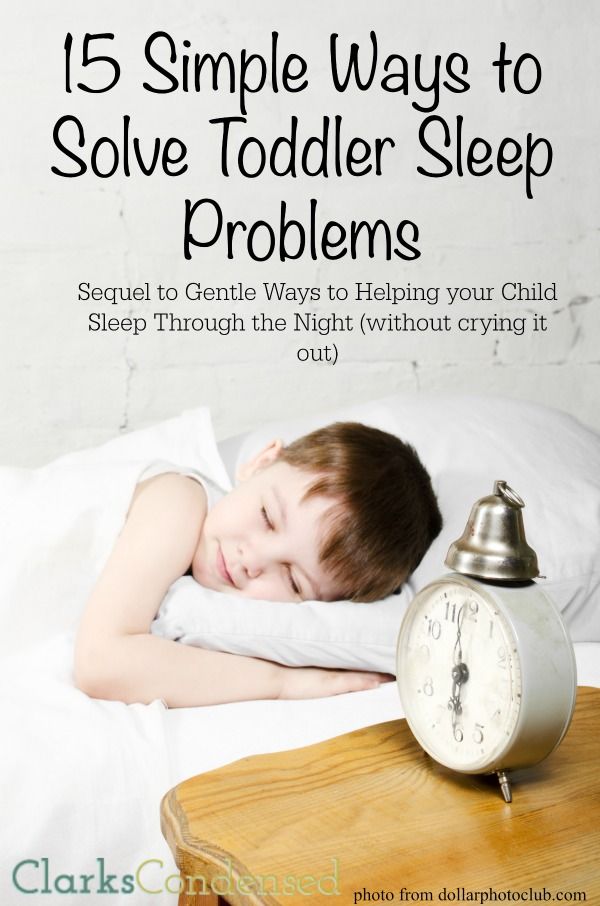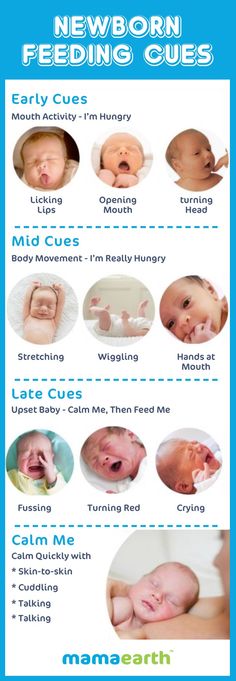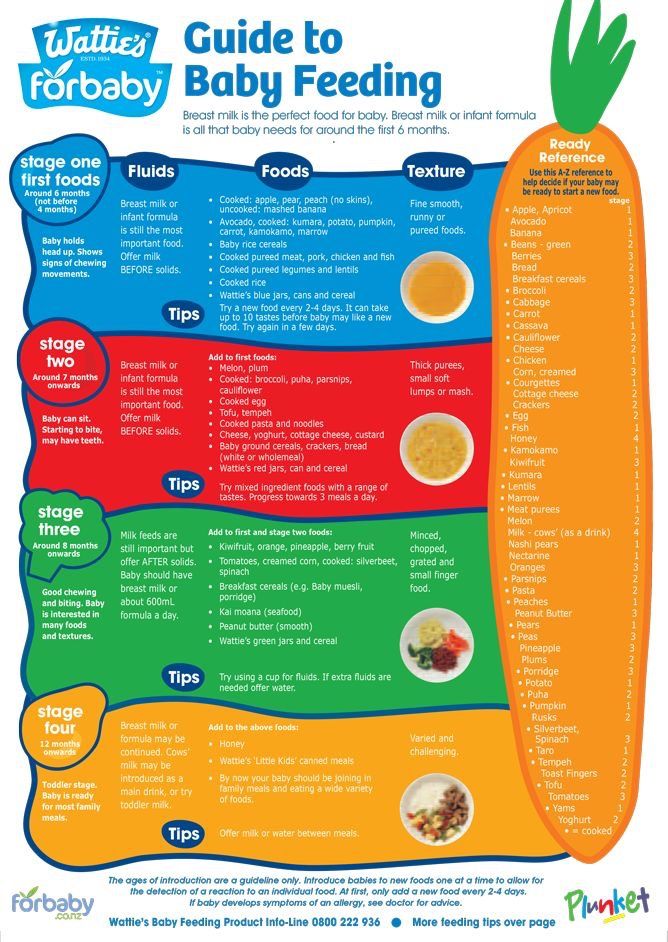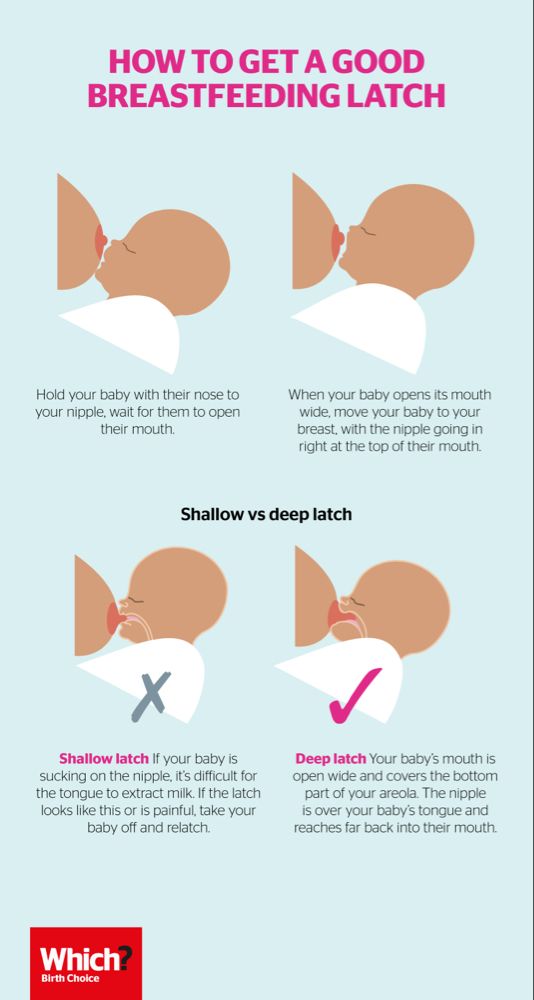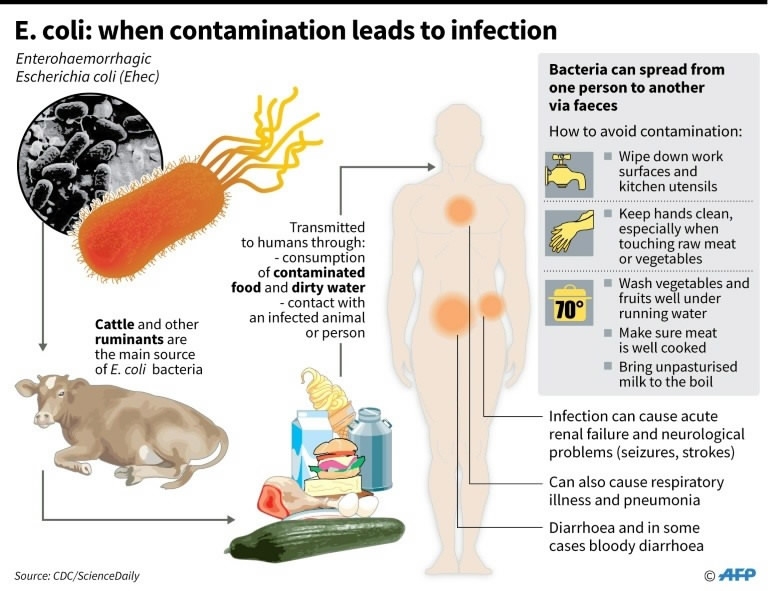When should my baby sleep through the night without a feed
When do babies sleep through the night?
Sleepless nights are common in new parenthood, but they do not last forever. Most babies will begin to sleep for longer periods at night from the age of 6 months old.
Newborn babies need to feed every few hours until the age of 3 months. After this, it is normal for infants to feed once or twice during the night.
Most infants can sleep for 6–8 hours without a feed by the age of 6 months. Once they are 9 months old, most infants can sleep for 11–12 hours without a feed.
It can be helpful to start to create a routine for bedtime and feeds early. Remember that every infant is different, so be as flexible as possible.
This article will discuss when babies start to sleep through the night and the sleep duration that is normal at each age.
Newborn babies tend to sleep for 1–4 hours at a time. They will sleep and wake during the day and at night. Most newborns need around 17 hours of sleep in a 24-hour period.
After establishing feedings, a newborn will wake up when hungry and need regular feeds. This spaces out the calories they need and helps them gain weight and grow.
Most infants will begin to develop more regular sleep patterns by the age of 6–8 weeks. They will connect short sleeps into a longer period of sleep.
It takes time for an infant to learn the difference between night and day. By the time they are 4 months old, however, most infants will sleep for twice as long at night as they do during the day.
Sleeping through the night usually means sleeping for 6 hours or more overnight. An infant may wake briefly for a feed and go back to sleep afterward, but this still counts as sleeping through.
It is common for an infant to begin sleeping through the night and then stop. This may be because they are adjusting to new growth or development.
Until they are around 4–6 months old, most infants will need at least one nighttime feed, but they are usually able to go back to sleep afterward. By 9 months, an infant may be able to sleep for up to 11–12 hours without a feed.
Every infant is different, and many things can prevent them from sleeping through the night.
Every infant will need a slightly different amount of sleep, which will change as they grow and develop. Guidelines can help predict how much a newborn or infant may sleep.
For example, the National Sleep Foundation give the following recommendations:
| Age | Recommended hours of sleep |
| 0–3 months | 14–17 hours |
| 4–12 months | 12–15 hours |
| 1–2 years | 11–14 hours |
These figures are for a 24-hour period. Most infants and young children will need naps during the day as well as sleep at night.
Every infant is different, and they may not fit neatly into one of these categories. Differences in weight, development, and personality are common, and all of these factors can affect an infant’s sleep.
Most newborn babies cannot go a whole night without feeding. Until they are 3 months old, they may wake often during the night. This may not be at regular intervals, and the pattern is likely to change as an infant grows and develops.
Until they are 3 months old, they may wake often during the night. This may not be at regular intervals, and the pattern is likely to change as an infant grows and develops.
Formula-fed infants often sleep for longer stretches of time and may wake less often at night. This may be because formula takes longer to digest. Overall, however, breastfed and formula-fed infants will sleep for the same amount of time during a 24-hour period.
An infant aged 3 months or older will usually need at least one feed during the night until around 6 months of age. At this point, they may still be settling into the routine of day and night.
Infants aged 3–6 months may associate a feed with sleep. Feeding an infant to sleep can make it harder for them to fall asleep on their own. In time, they may only be able to go to sleep if they have a feed. This can prevent them from sleeping through the night.
Immediate problems that can prevent an infant from sleeping include:
- being too hot or too cold
- illness
- adjustments during growth, such as hunger or sleep requirements
Most of these issues should not last longer than a few days, however.
It is common for infants to start sleeping through the night and then begin to wake again. This is sometimes known as sleep regression.
Sleep regression can occur when development speeds up. It can also occur when the infant’s sleep needs change.
Sleep regression can last for days or weeks, but parents and caregivers can usually address the causes of this.
When an infant reaches 3–4 months of age, they may sleep less during the day and longer at night.
An infant should sleep in the same room as a parent or caregiver until they are at least 6 months old. They should sleep on their back and be able to move freely.
The following tips can help an infant learn to sleep through the night:
- Prevent the infant from becoming overtired: Look for signs that the infant is getting sleepy. Signs can include drooping eyelids, slow movements, yawning, and rubbing the eyes. Taking naps during the day can help stop an infant from becoming overtired by bedtime.

- Keep a distinction between night and day: This helps the infant learn that nighttime is for sleeping. In the evening, dim the lights, use blackout curtains, keep noise to a minimum, and speak softly.
- Keep a consistent bedtime: This can help create a routine.
- Create a simple, relaxing bedtime routine: This could include a bath, a short massage, a story, or gentle music. Most infants will learn to link a bedtime routine to sleep.
- Connect a bed with sleeping: If the infant always falls asleep being held or fed, they may link this to sleep and not be able to fall asleep in bed.
Feeding
When an infant reaches 3 months of age, aim to create a feeding schedule. Try to stick to this schedule, so that the infant adapts and learns to fall asleep without a feed.
It is also a good idea to feed the infant, then put them to bed — sleepy but awake — soon after. Feeding the infant close to bedtime can help prevent them from getting hungry and waking soon after going to sleep.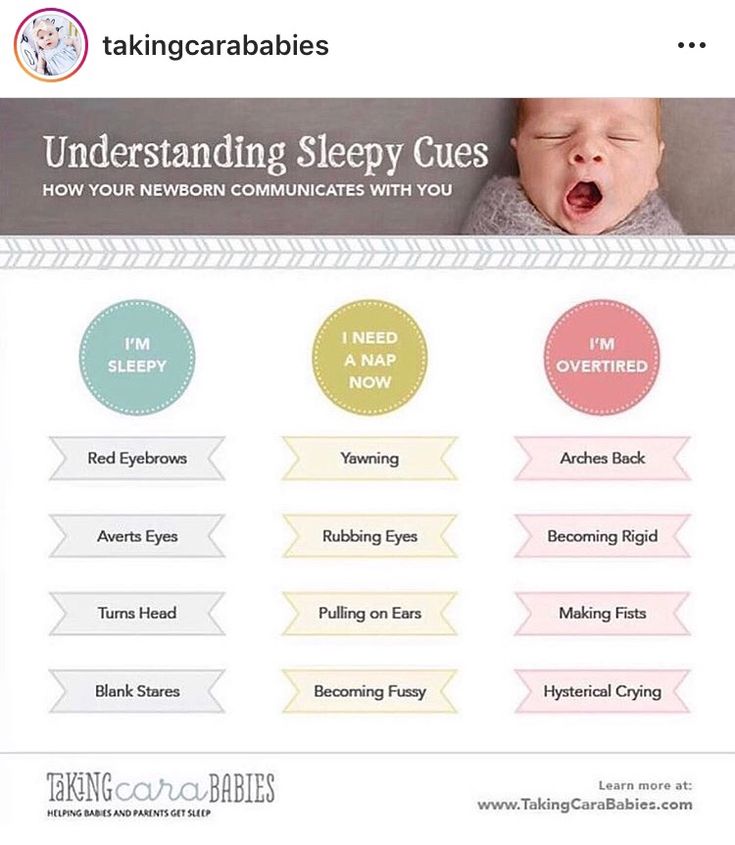
Slowly reduce nighttime feeds to help the infant sleep for longer periods at night. A parent or caregiver can do this by:
- gradually leaving longer between feeds
- feeding for a shorter period
- calming the infant in their bed when they wake, instead of automatically feeding them
Try to have them not fall asleep while feeding. If they wake in the night, it is less disruptive if they can go back to sleep without a feed.
If an infant is not regularly sleeping through the night by the time they are 6 months old, it may be best to seek a doctor’s advice. Although it is unlikely that anything is wrong, the doctor will check the infant’s health and be able to offer support.
Lack of sleep can be very challenging for parents and caregivers. Try to set good habits early, but be flexible and make changes to routines if needed. Try to rest or nap during the day if possible.
Most infants will be able to sleep through the night with one or two feeds by the time they are 6 months old.
However, every infant is different and will have their own pattern of sleeping. These sleeping habits will change as they grow and develop.
Creating a bedtime routine and feeding schedule can help. Expect some changes to this routine as they learn new skills and start teething.
When Do Babies Sleep Through the Night Without Feeding?
Skip to content☁️ FREE SHIPPING ON U.S ORDERS ☁️
Now reading: When Do Babies Sleep Through the Night Without Feeding?
PrevNextI remember my eldest's first full night in the hospital like it was yesterday. And that's because it was a breeze. Yes, I still fed her every 3 hours, but she went back to sleep immediately each time. I wondered what all the fuss was about with the lack of sleep. And then the next night came and it was nothing like the first...I swear she was attached to my boob for almost the entire night. Then home, and more of the same. From then on I understood. And though I was the happiest I'd ever been in my life I found myself wondering how long it would take before she could sleep through the night without a feeding.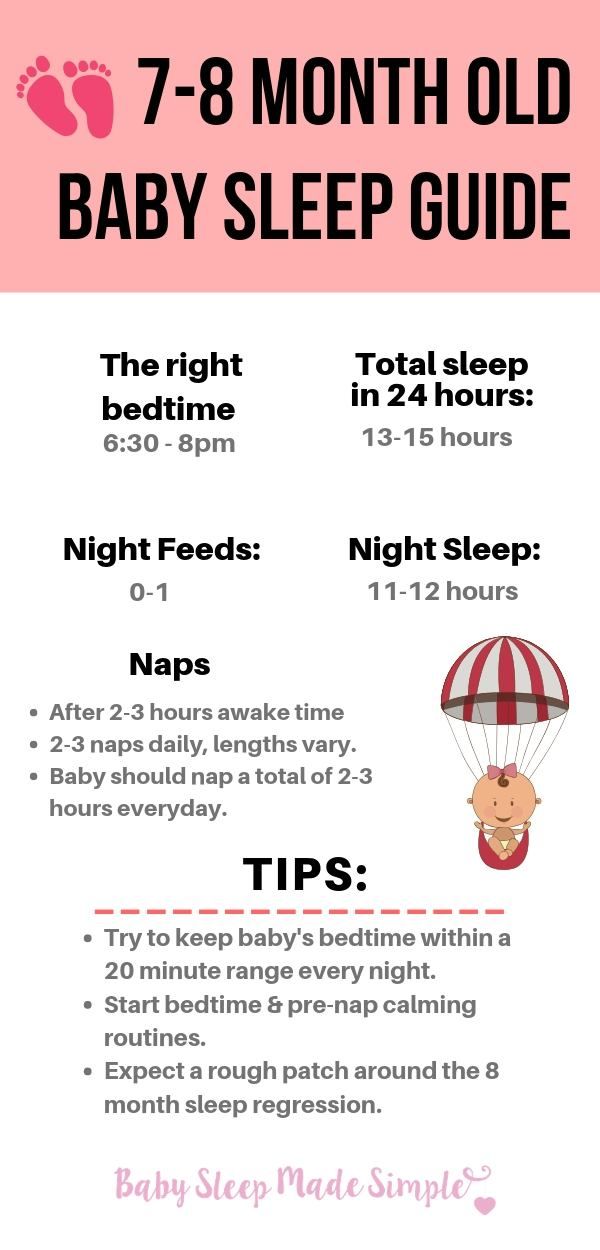
It was draining me. I found myself wanting to stop time to soak in all that baby sweetness paralleled by a feeling of wanting to speed it up so we could all finally get some sleep. Eventually, she did sleep through the night.
As much as I would love to tell you the exact moment when a baby will be able to eat enough by day that they can make it all night, it's far from that simple. So we've partnered with Kelley Thompson, Certified Pediatric Sleep Consultant, from Serenity Sleepers to give you a logical timeline of what you can expect when it comes to your baby's sleep and how long they can stretch it without waking for a feeding.
The Reason Why Babies are Hungry at Night
Though this isn't rocket science, it can be perplexing at first why your baby can't fill up on enough calories throughout the day that enables them to sleep through the night like you can.
But there are 2 big differences between you and your baby.
- Your baby's tummy is tiny! And it can only hold so much milk.
 Within the first couple days of your baby's life we're talking just a couple of teaspoons of milk capacity, and still even only 3-4 ounces around 1 month of age.
Within the first couple days of your baby's life we're talking just a couple of teaspoons of milk capacity, and still even only 3-4 ounces around 1 month of age. - Babies grow at a rapid rate. Initally, they lose weight in the first couple of days, but then they should be back to their birth weight within 2 weeks. So you could see why they'd be so hungry! After that, they'll double their birthweight by about 4 months old. And triple it by age 1! Your 7-pound newborn will weigh around 21 pounds after one year. With such fast-paced growth (compared to your weight which should roughly stay the same) you can see why eating so much is important.
Because of these 2 factors, it's just not realistic to expect your baby to be able to sleep through the night initially when they're needing to beef up. Because they're able to digest milk pretty quickly (breastfed babies especially), it's likely that they're going to wake up in the middle of the night ready for a meal - perhaps multiple times.
The Definition of Sleeping Through the Night
When your friend tells you that they're baby is sleeping through the night, and you find out that it was actually only a 6-hour stretch, it might make you say, "Hmmm..." After all, you wouldn't be rested with only 6 hours of sleep. What gives?
Sleeping through the night can be defined in one of three ways:
- When the experts say, "Sleeping Through the Night" - generally this means 6 - 8 hours because that's the full stretch that a baby can usually handle at least in the later infant stages (around age 3 months+)
- What you think "Sleeping Through the Night" means for yourself - At least for me, this means 8 hours - and in general, that's about the amount that most adults need to function well during the day. Even though you know your baby has different needs, you might think, I can't wait til my baby sleeps through the night so that I can, too (and get your full 8 hours).

- What a full night of "Sleeping Through the Night" would be for your baby - Babies generally need a nighttime portion of sleep about 10 - 12 hours in length. Eventually, they WILL sleep this full stretch without waking up in between. But when?
There is a gradual progression in terms of how long your baby can stay asleep before they wake up needing to eat. Though there are other factors that keep babies up at night (which we'll get to), the number one reason they wake up frequently is that they are hungry.
Since you might have three separate expectations, we'll go over when you might expect each of these levels of "sleeping through the night" to occur. With that said, EVERY baby is different, and it may not align perfectly. Formula-fed babies usually "sleep through the night" more quickly than breastfed babies, but not always.
Building a Foundation for Sleeping Through the Night
Yes, your baby being hungry is the main reason they are going to wake up. But they should be able to go longer and longer stretches as they grow without needing those feeds any longer.
But they should be able to go longer and longer stretches as they grow without needing those feeds any longer.
When we asked Kelley of Serenity Sleepers her top recommendation for getting a baby to sleep through the night she had this to say:
"First a baby needs to have the proper sleep education and sleep foundations in place before they will be able to sleep through the night.
Once a baby is able to put themselves to sleep on their own, able to link sleep cycles, has age-appropriate routines, and proper day sleep in place they will be able to have longer stretches of overnight sleep.
Sleeping through the night for 11-12 hours at a time, is developmental, and will look different for each baby, but when a baby has proper sleep foundations as stated above, they will do it when their body is ready."
Stage 1 Sleeping Through the Night Without Feeding (6 - 8 hours):
Around 4 months of age is when most parents will start to see signs from their babies that they're able to sleep in longer stretches. Getting up to 5 and 6 hours by this point is very likely. This is especially true once your baby makes it through the 4-month sleep regression. Be sure to read our article, "Getting Through Your Baby's 4-Month Sleep Regression," to find out what you can expect during this time.
Getting up to 5 and 6 hours by this point is very likely. This is especially true once your baby makes it through the 4-month sleep regression. Be sure to read our article, "Getting Through Your Baby's 4-Month Sleep Regression," to find out what you can expect during this time.
According to pediatrician Susan E.C. Sorenson over at BabyCenter, 6-month-olds "can sleep comfortably for at least six hours without waking up to eat." And some babies will do it even sooner than that.
By this age, babies usually have structured naps during the day and have plenty of wake time where they fill up on breastmilk and formula and also are stimulated enough to make them sleepy at night. Additionally, they're able to take in more calories at a time and are able to consolidate most of their night feedings down to just 1 or 2 per night.
We want to reiterate that it's different for every single baby, but expecting a 6-8 hour stretch of sleep from your 6-month-old is not unreasonable.
Stage 2 Sleeping Through the Night Without Feeding (8-9 hours):
Around the 7 - 9 month timeframe, you'll see your baby gradually sleeping for longer and longer stretches. It's important to remember however, that baby sleep is not linear. It might look like 1 step forward, 2 steps back for awhile. In other words, a few great nights of sleep might be followed by a few not so great ones. The important thing here, however, is to notice the progression from your little one as you start to see the length of sleep they are capable of.
Even though you yourself are not likely getting a straight 8-9 hours yet (because your baby will go down before you hit the hay), this is a big turning point for parents! And Certified Pediatric Sleep Consultant Kelley Thompson shared with us that this is a typical age where she sees a lot of babies even sleeping all the way through the night!
As long as you have worked hard sleep training your baby, and used self-soothing methods such as putting them in a Dreamland Baby weighted sack, your baby should easily go back down after you feed them. One 3 or 4 am feeding is really not so bad if you keep the lights low and keep your baby drowsy while you feed them. Simply put them back down and they should go right back to sleep until it's time to wake for the day.
One 3 or 4 am feeding is really not so bad if you keep the lights low and keep your baby drowsy while you feed them. Simply put them back down and they should go right back to sleep until it's time to wake for the day.
By this point, it's so nice to look back on how far you've come. And that full night's sleep is so close you can taste it...
Stage 3 Sleeping Through the Night Without Feeding (the full night - up to 12 hours)
Sleep expert Dr. Sarah Mitchell, who did a guest post for us recently, said that she sees many formula-fed 5 month-olds who can go 11-hour stretches at night. Though this is not the norm...we're just saying that it IS possible, and just goes to show how wide the spectrum can spread.
What's more likely is a 9 to 12-month-old who sleeps their full night of sleep without waking to eat. What this means is that you put your baby down for bedtime, perhaps at 7:30, and the next time you see their well-rested happy face isn't until 6:30 or so the next morning!! This is just as glorious as it sounds.
Not only is your baby getting healthy stretches of sleep so they can grow and thrive, but so are you. And as a busy parent, you know how much you need that uninterrupted sleep (not to mention those quiet hours to yourself before you go to bed!)
Other Factors that Keep Your Baby Up at Night
It's important to know what your baby is capable of in terms of sleeping through the night without the need of being fed. Though it's perfectly normal that your baby might still be waking in the middle of the night beyond the averages, if they are, you might want to start considering if it's something else that's waking them up at night.
Baby sleep can be all over the place in the first year, and it's not always because they're hungry (though that IS the top reason). If you are sure that your baby isn't waking out of hunger, here are some other possible reasons they might be waking up:
- they still have their days and nights mixed up
- sleep regressions
- growth spurts
- lack of self-soothing skills
- baby wants to see you!
- teething
- sickness
Some of these are completely unavoidable. We recommend taking it in stride and keeping reasonable expectations of what your baby can do in their first year of life. Beyond that, you can be sure that you're using our best sleep tips to help your baby maximize their length of sleep without waking. Here's what we suggest:
We recommend taking it in stride and keeping reasonable expectations of what your baby can do in their first year of life. Beyond that, you can be sure that you're using our best sleep tips to help your baby maximize their length of sleep without waking. Here's what we suggest:
- Set up a bedtime routine early on. You don't need to stress about this in the first few weeks home with your new baby, but once your baby is starting to have more noticeable sleep/wake cycles, getting into the habit of a good sleep routine is important. We discuss those steps in this article, and one item we recommend using is a Dreamland Baby weighted sack. The gentle weight feels like a hug to your baby and naturally induces sleep. Countless reviews state how well it helps little ones sleep through the night including this one from mom, Alex S.:
"This product truly saved us. It gave us back our nights, and helped our little guy sleep 6-7 hours every night. I can't thank Dreamland Baby enough for making such an incredible product. I would suggest for any new moms out there.”
I would suggest for any new moms out there.”
- Start sleep training around 4 months of age. Sometimes sleep training can get a bad rap, but it really shouldn't! It does not have to involve lots of crying and is one of the best ways to set up your baby for sleeping success! Kelley of Serenity Sleepers shares that, "most babies struggle to initially put themselves to sleep, and rely on someone or something to put them to sleep and then back to sleep when they wake during the night." Getting your baby to learn to sleep independently is really important.
- If your baby seems hungry, feed them! Even if your baby has been consistently sleeping through the night, they may go through a growth spurt where they need to eat again. Always assume this is what your baby needs unless your instincts tell you otherwise. We guarantee they'll be back on track after a couple of days.
The truth is that all babies learn to sleep through the night.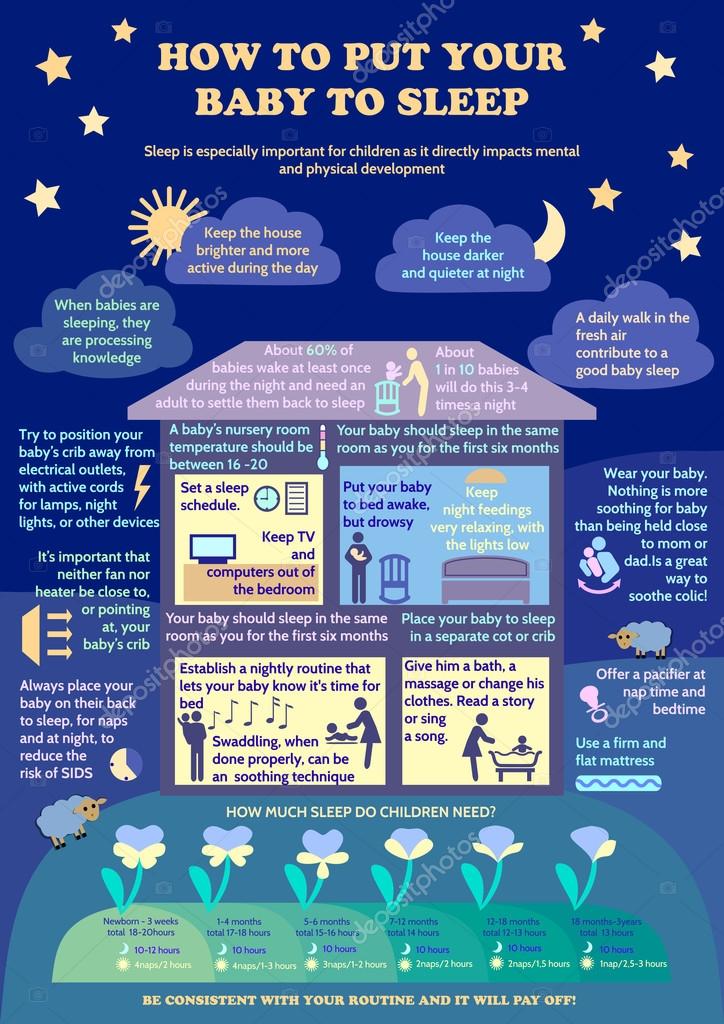 In time (likely before they turn one), their bodies will allow them to take in enough calories by day that they won't need to wake up to eat. Teaching them to self soothe and be an independent sleeper will also help speed along the process.
In time (likely before they turn one), their bodies will allow them to take in enough calories by day that they won't need to wake up to eat. Teaching them to self soothe and be an independent sleeper will also help speed along the process.
Do babies naturally drop night feeds?
As your baby grows and develops, it’s possible that she will no longer wake up for a feeding by the time she is between 4 and 6 months old. That’s because her tummy can now hold more food which may be helping her sleep for that much anticipated longer stretch of time. If you prefer to consider her weight, it’s usually at 12 pounds when babies no longer need a nighttime snack.
Keep in mind that every baby is different and you can decide when it’s time to cut back on the night time feeding when it’s comfortable for you. Of course, this is definitely something to discuss with your pediatrician if you have any concerns.
Which feeds drop first at night?
Some experts suggest to drop the first night time feeding from the routine. So if your baby feeds at 10pm and 2am, start by dropping the 10pm meal. Others suggest to cut down on every feeding by at least 3 minutes every few nights until you decrease it by enough that that feeding can be eliminated altogether. Remember that the older she gets, the less she’ll need the nighttime feed and dropping a feeding may occur naturally, ie: baby will sleep through it or show little interest in taking the breast or bottle.
So if your baby feeds at 10pm and 2am, start by dropping the 10pm meal. Others suggest to cut down on every feeding by at least 3 minutes every few nights until you decrease it by enough that that feeding can be eliminated altogether. Remember that the older she gets, the less she’ll need the nighttime feed and dropping a feeding may occur naturally, ie: baby will sleep through it or show little interest in taking the breast or bottle.
How long should nighttime feedings take?
While every baby is different, depending on her age, nighttime feedings can take anywhere from 20-30 minutes for newborns, every few hours, to a quick 5-10 minute snack at 6 months, a couple of times a night. There’s no such thing as one size fits all when it comes to baby, so trust your instinct and always talk to your pediatrician if you think your baby isn’t eating enough… or too much.
How long after feeding can I put my baby down?
It’s always a good idea to burp your baby before putting her down after a feeding to avoid any kind of reflux.
Should I feed my baby every time he wakes up at night?
It may be an impulse to rush into baby’s room at every sound or cry, but remember, as a baby develops her sleep patterns, it’s okay for her to miss a feeding here and there, especially once she’s at the 6-month mark. By then, she might be sleeping for 6-8 hour stretches without waking to eat… and by the time she’s 9 months, she may even be sleeping for an entire 11-12 hour stretch!
It’s in those early newborn months that it’s important to feed baby every time she wakes, which could be as much as every two hours during a 24-hour cycle. Be sure to check with your healthcare practitioner or pediatrician if you have any concerns about your infant’s sleep and/or feeding schedule.
Will my milk dry up if baby sleeps through the night?
Some parents feel that their milk isn’t coming in during evening hours as much as it did during the day, so babies may take longer to nurse. Don’t let this worry you! It’s normal for babies to eat less at night as they begin to sleep for longer stretches. This also means that your little one is probably eating more during the day. As new feeding schedules occur, your breasts will adjust. You can also continue to pump at night to keep your milk supply flowing.
Don’t let this worry you! It’s normal for babies to eat less at night as they begin to sleep for longer stretches. This also means that your little one is probably eating more during the day. As new feeding schedules occur, your breasts will adjust. You can also continue to pump at night to keep your milk supply flowing.
How do I increase milk supply when baby sleeps through night?
The more you nurse, the more your milk supply will increase. So as long as you continue to pump once or twice during the night while baby sleeps, your milk supply shouldn’t dwindle. It’s also advised to perhaps add an additional one or two pumping sessions whenever you believe that you have a fuller supply to pull from.
A Certified Sleep Consultant Answers All Your Baby Sleep Questions
Helping Baby Adjust to Spring and Fall Time Changes
When will my child start sleeping at night without waking up?
Interest in the world beyond the crib
When the baby starts sleeping at night without waking up is a very individual matter.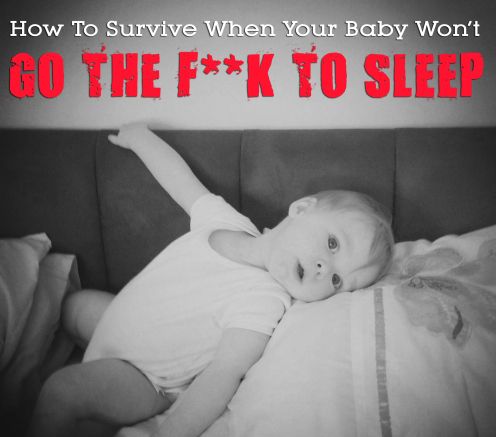 By responding to the needs of the child, parents can help promote healthy sleep for the child.
By responding to the needs of the child, parents can help promote healthy sleep for the child.
Starting at about 6 months old, children no longer need nighttime feedings, as at this age the rhythm of hunger and satiety in a healthy child stops at daytime. nine0005 Brief awakenings at night are quite normal. Ideally, babies fall asleep quickly and on their own again.
Awakenings can have many causes
Note that waking up or crying at night can have many causes. Along with hunger, thirst, and a wet diaper, there are occasional periods (teething, infections, or an eventful day) when the baby changes his habits: wakes up, babbles, or again asks for a breast or a bottle. Some babies cry when they need attention and care, or when they need to relieve some stress. Unfortunately, there are no guarantees for an uninterrupted night's sleep for your baby. It also happens that the baby, who until now slept well and did not wake up at night, suddenly starts waking up again at night. Basically, it's just a temporary thing. nine0003
Basically, it's just a temporary thing. nine0003
A regular daily routine is very important
A regular daily routine is important with regular meals, sleep duration and other activities such as walking. Repetitive rituals such as bathing, feeding, evening fairy tale, lullaby, as well as a calm atomosphere always have a calming effect.
Patience Needed
Don't lose patience if your child doesn't find his sleep rhythm right away. Miracles do not happen! You cannot control your child's sleep. However, you can help your child develop a regular rhythm by ensuring healthy sleep. Do not be discouraged if other children have allegedly been sleeping at night for a long time without waking up. This concept is relative, because, as for infants, we can talk about continuous night sleep even if they sleep from midnight to 5-6 in the morning. Parents of young children, as a rule, should tune in to the fact that in the first 3-4 years of a baby's life, their nights will be restless.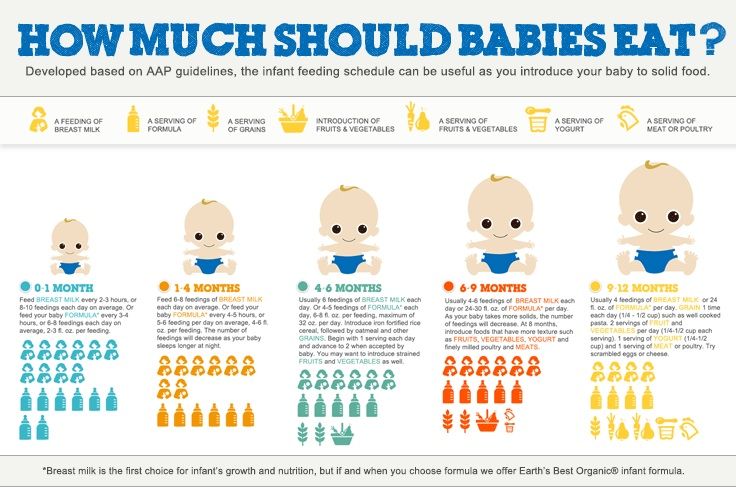 nine0003
nine0003
Learn more: Tips
Video: Weaning advice - OB tips Video: Baby massage Diet planFood and drinkDigestion for your babyOn vacation with your baby baby? Do I need to feed my baby at night? When will my baby start sleeping at night without waking up? Tips for improving your baby's sleep
Baby crying Motor and speech
Choice of complementary foods
No age restrictions from the first daysfrom 1st monthfrom 4 monthsfrom 5 monthsfrom 6 monthsfrom 7 monthsfrom 8 monthsfrom 9 monthsfrom 10 monthsfrom 12 months
puree from 4 months - Vegetable puree from 5 months - Vegetable puree from 6 months - Vegetable puree from 7 months - Vegetable puree from 8 months Fruit puree - from 4 months - from 5 months months - from 6 monthsMeat purees - Meat pureesMeat and vegetable menu - from 8 months - from 12 monthsFish and vegetable menu - from 9Soups - from 6 months - from 7 months - from 8 months - from 12 months - From 18 months "Good night" in jars - Cereal porridge with fruit in jarsDrinks - Health drinks - Granulated teas - Tea bags - JuicesCookies - Cookies
When the baby starts sleeping through the night without waking up for nighttime feedings
Contents
With the birth of a child, many mothers forget about quiet nights, as the sleep of newborns is disturbing and sensitive. Some babies wake up only a couple of times a night for feeding, others startle at any rustle and creak. There is also a third group of babies, which get enough sleep during the day, and are active at night. Many parents are interested in when the child begins to sleep through the night without waking up. This problem is solved for everyone individually, since the reasons that interfere with sound sleep of newborns are different for everyone. nine0045
Some babies wake up only a couple of times a night for feeding, others startle at any rustle and creak. There is also a third group of babies, which get enough sleep during the day, and are active at night. Many parents are interested in when the child begins to sleep through the night without waking up. This problem is solved for everyone individually, since the reasons that interfere with sound sleep of newborns are different for everyone. nine0045
Features of children's sleep depending on their age
The period of sound sleep in a child lasts about an hour. After it comes another phase, during which the baby may wake up from a feeling of hunger, or simply bored.
English scientists conducted an experiment: one group of infants slept in silence, for the other they turned on audio recordings with a heartbeat. The second group of babies slept more soundly, as they felt this rhythm in their stomachs for nine months.
For the most part, babies sleep superficially, so a sharp sound and loud conversations can wake them up. However, do not walk on tiptoe and maintain deathly silence while the baby is sleeping. You should gradually adapt the child to sleep with light noise, extraneous sounds: you can turn on classical music at a low volume. On the Internet, you can download suitable audio recordings (choose one with good sound quality), and play them when you put your baby to bed. Closer to six months, the child begins to sleep more soundly, without being distracted by sounds. nine0003
However, do not walk on tiptoe and maintain deathly silence while the baby is sleeping. You should gradually adapt the child to sleep with light noise, extraneous sounds: you can turn on classical music at a low volume. On the Internet, you can download suitable audio recordings (choose one with good sound quality), and play them when you put your baby to bed. Closer to six months, the child begins to sleep more soundly, without being distracted by sounds. nine0003
Healthy sleep is necessary for a child at any age, since it is in childhood that the nervous system is formed. How and how much the baby sleeps depends on his mood, well-being and development. A well-rested child learns the world around him more willingly, eats better and performs the necessary exercises.
Based on how the child sleeps at night, they can be divided into groups:
- The child hardly sleeps at night. People say about such newborns that they “confuse day with night”.
With age, other problems may appear that interfere with long and sound children's sleep. In the first three months, the child may be disturbed by colic, then teething. nine0066
- Children's sleep at night is interrupted several times. Often in newborns there is hypertonicity of the arms and legs, so they are not responsible for their body movements. At night, a wrong wave may wake the child, and he may be frightened.
- The child wakes up a couple of times to eat. Frequent feeding of newborns is associated with rapid absorption of milk. The baby will not be able to fall asleep with a “rumbling tummy”.
- The baby sleeps all night without waking up. nine0045 This is extremely rare in newborns, is a controversial issue. Some pediatricians recommend mandatory night feedings.
Depending on which group the baby belongs to, recommendations are given on how to help him sleep soundly and calmly at night.
Video: if the child does not sleep well
How does your child sleep?
- Owl baby awake at night, sleeping during the day
Young parents are largely to blame for this behavior of the baby. With such children during the day it is necessary to talk and play more often, but one should not overexcite the state of the child. During daylight hours, do not close the curtains, blinds: let sunlight enter the room. nine0003
In the evening, before going to bed, take baths with the possible addition of chamomile, string. When using herbs, be sure to monitor the condition of the child's skin, in some people they cause allergies, and instead of sound sleep, your child may experience discomfort and itching. The water temperature should be 37-38 degrees, the baby will begin to freeze and, as a result, warm himself with various body movements, which will lead to an excited state.
Personal video greeting from Santa Claus:
Also, try not to give new toys to your child before bedtime, let him be surrounded by already learned environment. So it will be easier for him to fall asleep without arousing his consciousness. Before going to bed, you can also either sing a specific lullaby, or turn on specially prepared music. Such a ritual will help the child realize that he is being put to sleep.
So it will be easier for him to fall asleep without arousing his consciousness. Before going to bed, you can also either sing a specific lullaby, or turn on specially prepared music. Such a ritual will help the child realize that he is being put to sleep.
If the child has hyperactivity that prevents him from sleeping soundly, swaddling may be applied. There are ongoing debates on this subject. Some pediatricians already in the maternity hospital advise not to swaddle children. The behavior of each child is individual and does not follow strict rules: some children sleep peacefully in vests, others wake up from their movements. Up to three or four months, you can swaddle a child, at least before a night's sleep, this will help him sleep without being distracted by his arms and legs. (Swaddling: FOR and AGAINST)
- Baby sleeps soundly but wakes up sometimes
This is explained both by temporary causes (colic, teething) and by some physical inconvenience. In such cases, it is necessary to analyze these awakenings. Perhaps the diaper is full, or the child is uncomfortable.
In such cases, it is necessary to analyze these awakenings. Perhaps the diaper is full, or the child is uncomfortable.
Set the temperature in the room to promote sound sleep: ventilate the room, increase or decrease the humidity. If the newborn is breastfed, maybe he just does not have enough mother's breast to calm him down. It has been noticed that when breastfeeding is abandoned, the baby begins to sleep all night without nightly feedings. But do not rush to wean the baby from the breast, this can lead to the opposite effect: the baby will start to get nervous and cry. Pediatricians consider the time after a year from birth to be optimal. (when to wean a baby?)
- Child wakes up at night because of hunger
The most common occurrence is when a baby wakes up to eat. In the first months after birth, frequent feedings in small portions are recommended. With age, the required daily amount of food consumed increases: the child eats less often, but more. The daily diet as they grow older becomes more diverse: fruit, vegetable purees, cereals, soups are introduced (first complementary foods: how to start). In this case, the child may also oversleep at night from a feeling of hunger. Although sometimes such awakenings can be associated simply with habit. Try replacing your feeds with milk or formula with plain water. If the child does not fall asleep and is naughty, then he is hungry. nine0003
The daily diet as they grow older becomes more diverse: fruit, vegetable purees, cereals, soups are introduced (first complementary foods: how to start). In this case, the child may also oversleep at night from a feeling of hunger. Although sometimes such awakenings can be associated simply with habit. Try replacing your feeds with milk or formula with plain water. If the child does not fall asleep and is naughty, then he is hungry. nine0003
The normal age for weaning night feeds is nine months. But do not rush to think that at this time the baby himself will stop eating in the dark. As mentioned, the development of the child is individual, and if the child is worried about teething, it is unlikely that he will sleep peacefully. Other pediatricians advise against avoiding nighttime feedings until one year of age. If you are breastfeeding, they must be continued throughout breastfeeding or pumped at night. Prolactin, necessary for lactation, is produced only at night. nine0003
Babies cannot endure hunger, unlike adults. It must be remembered that the child begins to sleep all night without food when they become mentally and physically capable of it. If you decide to give up night feedings, you need to do this gradually. There are a number of tips to help you through this process.
It must be remembered that the child begins to sleep all night without food when they become mentally and physically capable of it. If you decide to give up night feedings, you need to do this gradually. There are a number of tips to help you through this process.
- Most of the daily food intake should be given to the child during the day.
- Compliance with a clear daily routine.
- Before going to bed, feed your baby well so that he sleeps longer. nine0066
- Replace milk/formula with water or baby tea at night. Reducing the volume of the night portion.
- The child must fall asleep on his own. Thus, having rocked him a little in his arms, in the cradle or in the crib, you need to leave the baby in a half-asleep state.
- Baby does not sleep at night after reaching one year of age
When a child gets older, there is the possibility of an oral contract with him. At this age, the inner atmosphere in the family, the necessary affection and care are important for the baby.